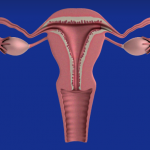Prefer to listen? Check out my podcast here!
We are now very well acquainted with the efficacy of GLP1 receptor agonists (GLP1RAs) in weight management. Semaglutide (Wegovy) and liraglutide (Saxenda) are well established as effective obesity treatments. Tirzepatide (Zepbound) is a dual GLP1/GIP receptor agonist also approved and in use in several countries for weight management. What is GLP2 (yes two), and could GLP2 receptor agonism be an untapped frontier in weight management medication?
GLP2 is secreted along with GLP1 by the intestinal tract after we eat. While GLP2 does not seem to have an effect on appetite or food intake in humans, it does improve the integrity of the lining of our gut, strenthening our gut’s barrier function and preventing inflammatory gut contents from getting into our circulation. As obesity is a condition of low-grade inflammation, it is hypothesized that GLP2 could have a beneficial role in weight management by strengthening the gut barrier and preventing proinflammatory substances from getting through. GLP2 may also help to maintain functional integrity of both subcutaneous and visceral fat tissue.
While GLP2 alone doesn’t seem to be useful for weight management in humans, GLP2 combined with GLP1 is under investigation. At the recent European Association for the Study of Diabetes (EASD) meeting, the dual GLP1/GLP2RA dapiglutide phase 2a DREAM trial was discussed. This trial enrolled 54 adults with obesity to dapiglutide 4mg vs 6mg vs placebo, without any lifestyle intervention. Disappointingly, researchers found that 12 weeks of treatment with dapiglutide resulted in weight loss that was not significantly different from placebo. It has been hypothesized that the doses were not high enough in this study to see meaningful clinical effect; studies are now underway to assess higher doses of dapiglutide, with top-line results looking more encouraging.
One GLP2 receptor monoagonist, teduglutide (Revestive) is approved for the treatment of short bowel sydrome, a condition characterized by nutrient malabsorption due to surgical removal of large portions of the intestine. GLP2 may be benefical in this group of people because it increases blood flow in the intestines and improves gut health, improving absorption of nutrients. It will be interesting to see if combining GLP2 with appetite-reducing hormones may have a benefit in weight management!
Share this blog post using your favorite social media link below!
Follow me on X/twitter! @drsuepedersen
Follow me on Insta! drsue.ca
www.drsue.ca © 2024












